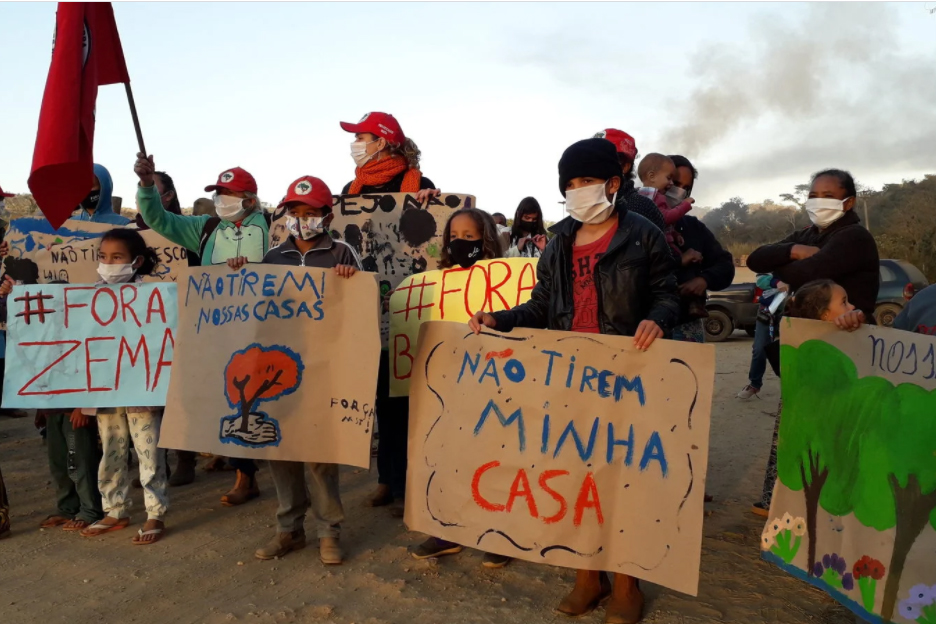Why it is urgent to protect quilombola communities during the pandemic
The crisis is like fire in the Cerrado savanna: traditional communities resist violations by the federal government to preserve their way of life

For the thinker Nego Bispo, one of the leading voices from the country’s traditional communities, quilombos have ways of doing politics that transcend theory. “How can Karl Marx teach us if the Palmares quilombo happened before he was born?” he asked in a conversation with Professor Renato Noguera, on Instagram. “Palmares did everything that Marx only wrote about, and he didn’t even write everything.”
It was with a view to preserving and protecting these ways of life that Conaq (National Coordination of Black Rural Quilombola Communities), together with the political parties PSB, PSOL, PCdoB, Rede Sustentabilidade and PT, filed the ADPF (Allegation of Violation of a Fundamental Precept) No. 742 in the Supreme Court, calling for guarantees of protection for quilombola communities during the pandemic. Despite the urgency, the case, filed in September, only started to be judged on February 12.
“We wouldn’t have to resort to measures like this if the Brazilian government observed what is in the Constitution, if it fulfilled its role of looking after and protecting the most vulnerable populations,” said Selma Dealdina, executive secretary of Conaq.
According to the IBGE statistics institute, there are currently 5,972 quilombos in Brazil. Given the shortage of official data on the pandemic, Conaq launched, in partnership with ISA, the Quilombo Without Covid-19 platform, which has already registered more than 200 deaths in quilombola communities. Deaths that could have been prevented.
The Conaq case is an attempt to resist this neglect. “This ADPF case demonstrates that the quilombos are invisible in Brazil,” said Julia Neiva, coordinator of the Development and Socioenvironmental Rights program at Conectas – which is participating in the judgment as an amicus curiae (friend of the court) together with organizations such as ISA, Educafro, Human Rights Clinic of UERJ (Rio de Janeiro State University), Terra de Direitos, IARA (Racial and Environmental Advocacy Institute), the National Federation of Quilombola Associations and the Federal Public Defender’s Office.
According to Neiva, in addition to highlighting the structural racism in society, another important aspect of the case is the evidence of many violations that have occurred in quilombola territories, such as lack of access to water and sanitation and a number of land repossessions. “One of the key points of our case is the need to suspend evictions, because even though these people are in a precarious situation, they are better protected in these communities,” said the lawyer, recalling the recommendations of international bodies like the UN and the Inter-American Commission on the protection of vulnerable ethnic and racial groups.
For Nego Bispo, the political situation in the country is comparable to the natural burning of the Cerrado savanna, the environment where he grew up. He explains that the fire occurs when materials such as manure, feathers, animal hair and tree branches form a dry layer that stops decomposing and feeding the earth. “A flash of energy can cause a spark that burns this dry material. The wind scatters the ashes and the rain drains them into the earth. The heat also awakens seeds that were dormant and, as such, life returns in the Cerrado,” explained the thinker.
“This is what has happened in Brazilian society. What people call a crisis, the fall of Dilma Rousseff, is the fire in the Cerrado. Political parties, unions and other institutions are the dry material that prevent the necessary conditions for life. Today, they are playing a transitional role. Indigenous peoples, quilombos and other traditional communities are the seeds that have awoken. Now, each of them is responsible for making their own way forward.”
According to Selma Dealdina, of Conaq, the history of quilombos is an essential part of Brazilian history, because they delivered a blow to slavery and created places for collective experiences that have resisted to this day. “Some say that the quilombos ended when they thought they had destroyed Zumbi, Dandara and Palmares, but that is not true, because Palmares is inside me, and is inside everyone who is fighting for better days ahead for black people, whether in the countryside or the city.”


